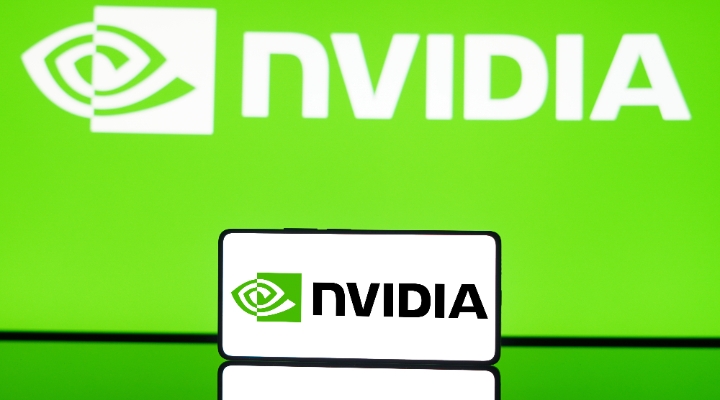
While the world may not be in imminent danger of coming under attack from Terminator-like autonomous killer robots with cataclysmic consequences for the human race, the rise of automation is an undeniable reality and compelling investment opportunity.
The use of robots in U.S. workplaces has more than doubled since the financial crisis, according to a recent report from The Century Foundation. Automation has been spreading relentlessly across industries and to myriad facets of modern existence. So much so that recent data from McKinsey & Company predict as many as 800 million global jobs could become automated by 2030. These findings are consistent with OECD projections that claim automation could destroy nearly half of jobs over the next couple of decades.
Consequently, the global industrial automation market is projected to skyrocket from US$157 billion in 2018 to about US$297 billion by 2026, growing in excess of 8% annually. As more industries turn to automation to achieve cost, production and operational efficiencies, as well as risk mitigation, the companies that provide automation solutions stand to gain tremendously from disruptive technologies and trends.
Its still early days for automation adoption. For long-term investors, this could represent a growth industry they can tap early into and profit from its exponential growth over the coming years. The following companies are well-positioned to benefit as automation continues to become more common, capable and complex.
|
Rockwell Automation Inc |
||
|
Ticker: |
ROK |
|
|
Current yield: |
2.09% |
|
|
Forward P/E: |
21.79 |
|
|
Price: |
US$198.76 |
|
|
Fair value: |
US$175 |
|
|
Value: |
14% premium |
|
|
Moat: |
Wide |
|
|
Moat trend: |
Stable |
|
|
Star rating: |
** |
|
|
Data as of Dec 09, 2019 |
||
Rockwell Automation (ROK) is a pure-play automation name that operates two segments: architecture and software, and control products and solutions. The former segment contains hardware, software, and communication components, while the latter segment sells industrial control products and offers technical automation services.
“We view Rockwell Automation as a high-quality, pure-play automation firm long dominant in discrete manufacturing,” says a Morningstar equity report, noting that the firm is one of only a few that are focusing on combining a customer’s traditional manufacturing plant floor operations with its IT functions on a creating a single, common software platform.
The logic is that the integration of plant assets with the rest of the enterprise value chain will help customers reduce their time to market, squeeze ownership costs and manage enterprise risk. Although the company doesn’t build robots, “it helps customers achieve these objectives by marrying differentiated technology with deep technical know-how to remotely monitor assembly lines, reduce energy costs, forecast outages, and strive toward continuous production,” says Morningstar equity analyst, Joshua Aguilar.
This strategy is underpinned by the company’s signature platform Logix, an easy-to-use platform that reduces training costs and maintenance expenses, and facilitates easier communication across different manufacturing cells. “Training costs will become a greater consideration as technology inevitably becomes increasingly integrated into manufacturing facilities,” says Aguilar, who recently raised the stock’s fair value from US$169 to US$175.
The wide-moat automation giant’s strategic partnerships and innovative solutions will allow it “remain a top player in the growing automation industry,” adds Aguilar.
Rockwell recently increased quarterly dividend 5% after reporting strong fourth-quarter results, including solid cash flow generation.
|
Siemens AG ADR |
||
|
Ticker: |
SIEGY |
|
|
Current yield: |
3.33% |
|
|
Forward P/E: |
15.95 |
|
|
Price: |
US$63.89 |
|
|
Fair value: |
US$67 |
|
|
Value: |
Fairly valued |
|
|
Moat: |
Narrow |
|
|
Moat trend: |
Stable |
|
|
Star rating: |
*** |
|
|
Data as of Dec 09, 2019 |
||
An industrial conglomerate, Siemens (SIEGY) sells components and equipment for factory automation, wind turbines, railway equipment, traditional power generation, and medical imaging.
“Siemens has a variety of industry-leading automation software for functions like process and discrete plant simulation as well as software to drive efficiency improvements,” says a Morningstar equity report, adding the firm’s software offering is a promising long-term revenue driver.
The company’s digital industries, smart infrastructure, and Healthineers segments are the most attractive components of the portfolio. They offer exposure to longer-term structural demand for industrial automation, electrification, and healthcare, respectively, the report says.
While the company’s overall economic moat is rated narrow, the digital industries division merits a wide moat rating because of its high customer switching costs and strong intangible assets. “Within digital industries, Siemens is a leader in industrial automation software, which contributes 25% of the division's revenue and around 5% of Siemens group revenue,” says Morningstar sector director, Denise Molina, adding that the segment is growing at three times the group rate, and should ultimately be margin- and return-accretive for the group.
The firm’s smart infrastructure division offers a variety of low- and medium-voltage equipment, and a wide range of building automation equipment. The portfolio also includes grid automation software, which generates recurring revenue. “Smart infrastructure, tied to building automation and low- and medium-voltage products, posted solid growth [in fiscal year 2019],” says Molina, who recently pared the stock’s fair value from US$77.50 per ADR to US$67 per ADR, prompted by the ongoing weakness in the gas and power segment.
|
Honeywell International Inc |
||
|
Ticker: |
HON |
|
|
Current yield: |
2.08% |
|
|
Forward P/E: |
19.57 |
|
|
Price: |
US$174.49 |
|
|
Fair value: |
US$167 |
|
|
Value: |
Fairly valued |
|
|
Moat: |
Wide |
|
|
Moat trend: |
Stable |
|
|
Star rating: |
*** |
|
|
Data as of Dec 09, 2019 |
||
Industrial behemoth, Honeywell (HON) operates globally through four business segments: Aerospace, Building Technologies, Performance Materials and Technologies, and Safety and Productivity Solutions. The company is increasingly transforming itself into a software-industrial player serving diverse end markets like U.S. defence, e-commerce, and oil and gas industries.
“Honeywell remains one of the best-positioned, multi-industrials for long-term growth based on a confluence of three factors--culture, process, and portfolio,” says a Morningstar equity report.
The company’s strategic acquisitions such as the robotics company Intelligrated and other bold-on buyouts helped boost its warehouse automation portfolio, and “will help propel the firm’s productivity solutions business toward a 9% CAGR over the next five years,” says Aguilar.
Automation providers like Intelligrated improve manufacturing facilities’ storage and throughput plans. Given that only about 5% of U.S. warehouses are automated, “warehouse automation is exposed to strong secular trends, including growth in e-commerce package volumes and omnichannel fulfillment needs,” says Aguilar, while pointing out that “automation benefits e-commerce customers by reducing manufacturing costs and increasing workplace safety.”
Aguilar regards Honeywell as one of the highest quality companies in the diversified industrials space to justify its wide-moat rating, which is built on intangible assets, switching costs, and cost advantage.
In addition, the company’s fundamentals in aerospace are projected to remain strong, “driven by global air travel, U.S. defence spending, as well as connectivity offerings less driven by traditional flight hours,” asserts Aguilar, who recently upped the stock’s fair value from US$164 to US$167, prompted by strong third-quarter results.





















